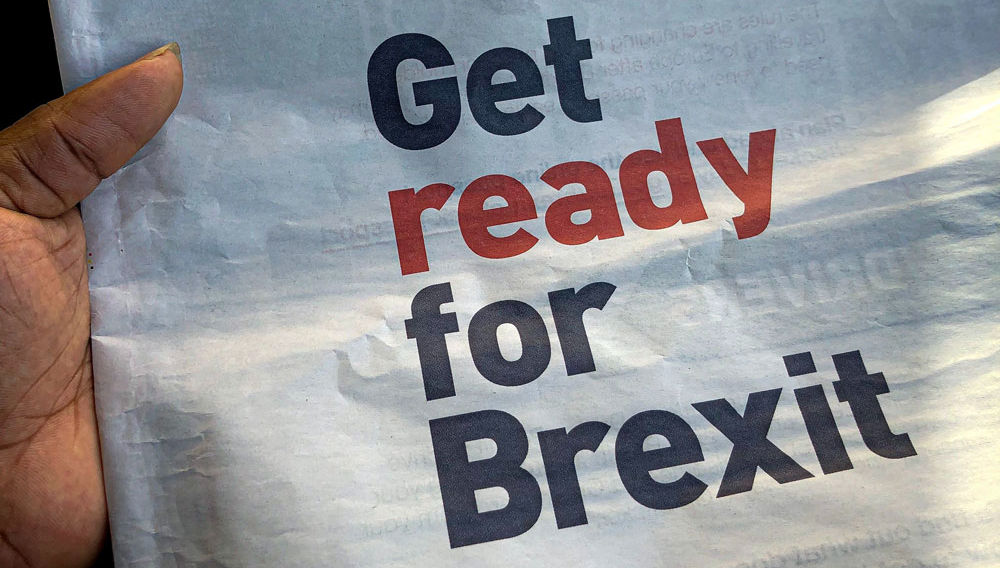Brexit: Kent brewery calls in administrators after exports tumble
United Kingdom | The Old Dairy Brewery must be in bad shape financially that it had to call in the administrators. Whatever the reasons – Brexit delivered the final blow.
Six years after the Brexit referendum, and more than two years after the UK officially left the EU, large companies will have found ways to deal with the post-Brexit paperwork when exporting to the EU. But for small companies, especially alcohol producers, the amount of work and costs involved can prove insurmountable, as the sad tale of the Old Dairy underlines.
In September, the Old Dairy Brewery from Tenterden in Kent filed notice of intention to appoint administrators in an effort to fend off creditors while it tries to find a buyer, The Times newspaper reported on 2 October.
Exports have dried up
Ironically, the brewery had appeared in a promotional video by the UK Department for International Trade only last year. In the video, the brewery’s export manager, Virginia Hodge, pointed out all the help small firms receive from the Government if they want to pursue export opportunities after Brexit.
One year later, she had to admit that her brewery has run into major trouble because its exports have dried up.
The brewery, which was founded in 2010 and produces some 6,000 hl beer per year, already complained in August this year that exports had plunged to GBP 2,000 (USD 2,220), although they were expected to rise to GBP 600,000.
Too much paperwork
It reported that customers in Europe wanted to take British beer, but that it was not cost-effective. Old Dairy even set up a collective of small breweries willing to export to the EU to share costs. But individually they can no longer send samples to trade fairs in Europe, as this will cost them GBP 400 (USD 445) per 12 bottles.
Ms Hodge also complained that hauliers will not transport alcohol now because of all the transit documents needed.
She told The Times of the brewery’s one remaining EU customer, a publican from Berlin, who had faced multiple challenges. “The first time he came over, we were up all night trying to get him through customs at Dover and out of the country. He was stuck because of the paperwork. He used to come over for just one night, but now it takes four days because of all the problems.”
Where is the help promised to small businesses?
Ms Hodge complained further that small businesses are not given sufficient support. She said advisers on government helplines referred questions about export problems to the government website.
Tim Webb, a UK beer writer and co-author of The World Atlas of Beer, shares her concerns: “It has been increasingly obvious in the UK that the clunky implementation of post-Brexit trading rules for brewers has lacked attention to detail, and the loss of Old Dairy speaks volumes. It was a brewery that made well-respected beers and genuinely saw new opportunities for expansion in Europe post-Brexit.”
“Even UK brewers large enough to have a regular contract with a favoured haulage company are experiencing problems. For those small brewers that rely on spot contracts to ship part-containers of beer, or who intend one shipment to go to more than one country, trading has been drastically curtailed. The flow of beer from small breweries between the UK and Germany has virtually ground to a halt.”
“For the big brewery companies, which effectively export brands to themselves, Brexit has proved only a minor inconvenience; for large independents it is a costly annoyance; but for those smaller independents wanting to export their beers, and the UK’s beer culture, it is another major headache in a season already full of bad migraines,” Mr Webb told BRAUWELT International.
Now who is to blame for this mess?
Keywords
United Kingdom breweries beer export exports Brexit
Authors
Ina Verstl
Source
BRAUWELT International 2022

